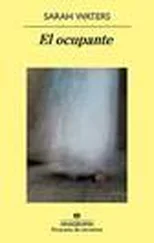Sarah Waters - Fingersmith
Здесь есть возможность читать онлайн «Sarah Waters - Fingersmith» весь текст электронной книги совершенно бесплатно (целиком полную версию без сокращений). В некоторых случаях можно слушать аудио, скачать через торрент в формате fb2 и присутствует краткое содержание. Жанр: Исторический детектив, на английском языке. Описание произведения, (предисловие) а так же отзывы посетителей доступны на портале библиотеки ЛибКат.
- Название:Fingersmith
- Автор:
- Жанр:
- Год:неизвестен
- ISBN:нет данных
- Рейтинг книги:3 / 5. Голосов: 1
-
Избранное:Добавить в избранное
- Отзывы:
-
Ваша оценка:
- 60
- 1
- 2
- 3
- 4
- 5
Fingersmith: краткое содержание, описание и аннотация
Предлагаем к чтению аннотацию, описание, краткое содержание или предисловие (зависит от того, что написал сам автор книги «Fingersmith»). Если вы не нашли необходимую информацию о книге — напишите в комментариях, мы постараемся отыскать её.
Fingersmith — читать онлайн бесплатно полную книгу (весь текст) целиком
Ниже представлен текст книги, разбитый по страницам. Система сохранения места последней прочитанной страницы, позволяет с удобством читать онлайн бесплатно книгу «Fingersmith», без необходимости каждый раз заново искать на чём Вы остановились. Поставьте закладку, и сможете в любой момент перейти на страницу, на которой закончили чтение.
Интервал:
Закладка:
Why should she do that?'
I did not know, and could not answer. He would leave me then, at the gate of the gaol— going quickly off, stepping into the street and calling out for a cab-man; and I'd watch him go with my hands at my head, for his shout, and the rattle of hooves and wheels, the movement of people, the very stones beneath my feet, would seem harsh to me. Everything seemed harsh, and loud, and harder and faster than it ought to have been, just then. Many times I would stop, and remember Gentleman, gripping the wound in his stomach, looking disbelievingly at our own disbelieving faces. 'How did this happen?' he had said. I wanted to say it, now, to everyone I saw: How did this happen? How can this be? Why do you only stand and watch me . . .?
I would have written letters; if I had known how to write, and who to send them to. I would have gone to the house of the man who was to be judge; if I had known how to find it. But I did nothing like that. What little comfort I got, I got at Mrs Sucksby's side; and the gaol, though it was so grim— so dark, and.bleak— at least was also quiet.
I got to spend more time there than I ought to have, through the kindness of the keepers: I think they thought me younger and less of a sharper than I was. 'Here's your daughter,' they'd say, unlocking the gate to Mrs Sucksby's cell; and every time, she would quickly lift her head and study my face, or glance beyond my shoulder, with a troubled look— as if, I thought, not quite believing they had let me come again and meant to let me stay.
Then she'd blink, and try at a smile. 'Dear girl. Quite alone?'
'Quite alone,' I'd answer.
'That's good,' she'd say after.a moment, taking my hand. 'Ain't it? Just you and me.
That's good.'
She liked to sit with my hand in hers. She did not like to talk. When at first I'd weep, and curse, and beg her to take back her story, my words would so upset her I feared she'd grow ill.
'No more,' she'd say, very pale in the face and set about the mouth. 'I done it, that's all.
I don't want to hear no more about it.'
So then I'd remember that dander of hers, and keep silent, and only smooth her fingers in mine. They seemed to grow thinner, every time I saw her. The keepers said she left her dinners quite
untouched. The sight of the dwindling of those great hands upset me, more than I can say: it seemed to me that everything, that was so wrong, would be put right if only Mrs Sucksby's hands could be made to be handsome again. I had spent what money there was in the house at Lant Street, on finding a lawyer; but all that I could make now through borrowing or pawning I put on little dishes to try and tempt her— on shrimps, and saveloys, and suet-puddings. Once I took her a sugar mouse, thinking she might remember the time she had put me in her bed and told me about Nancy from Oliver Twist. I don't think she did, however; she only took it and set it distractedly aside, saying she would try it later, like she did with everything else. In 329
the end her keepers told me to save my money. She had been passing the dishes to them.
Many times she held my face in her hands. Many times she kissed me. Once or twice she gripped me hard, and seemed about to speak on some awful matter; but always, at the last, she would turn the matter aside and it would be lost. If there were things I might have asked her— if I was troubled by queer ideas, and doubts— I kept quiet as she did. That time was bad enough; why make it worse? We talked instead of me— of how I should do now and in the future.
'You'll keep up the old place, at Lant Street?' she'd say.
'Won't I!' I'd answer.
'You won't think of leaving?'
'Leaving? Why, I mean to keep it ready, against the day they let you out. . .'
I did not tell her how very changed the house was, now that she and Mr Ibbs, and Mr Ibbs's sister, had gone. I did not tell her that neighbours had left off calling; that a girl threw a stone at me; that people— strangers— would come and stand, for hours at a time, at the doors and windows, hoping for a glimpse of the place where Gentleman had died. I did not say how hard I had worked, with Dainty, to take the blood-stain from the floor; how we had washed and washed; how many buckets of water we had carried off, crimson; how at last we had had to give it up, because the constant scrubbing began to lift the surface of the boards and turn the pale wood underneath a horrible pink. I didn't tell her of all the places— the doors, the ceiling— and all the things— the pictures on the walls, the ornaments upon the mantel, the dinner-plates, the knives and forks— that we found marked with streaks and splashes of Gentleman's blood.
And I did not say how, as I swept and scrubbed the kitchen, I chanced on a thousand little reminders of my old life— dog- hairs, and chips of broken cups, bad farthings, playing cards, the cuts on the door-frame made by Mr Ibbs's knife to mark my height as I grew up; nor how I covered my face and wept, at every one.
At night, if I slept, I dreamed of murder. I dreamed I killed a man, and had to walk the streets of London with his body in a bag too small to hold it. I dreamed of Gentleman.
I dreamed I met him among the graves at the little red chapel at Briar and he showed me the tomb of his mother. The tomb had a lock upon it, and I had a blank and file and must cut the key to fit; and every night I would set to work, knowing I must work quickly, quickly; and every time, just as the job was almost done, some queer disaster would happen— the key would shrink or grow too large, the file would soften in my fingers; there would be a cut— the final cut— I c o uld not make, never make in time . . .
Too late, Gentleman would say.
One time the voice was Maud's.
Too late.
I looked, but could not see her.
I had not seen her, since the night that Gentleman died. I didn't know where she was. I knew the police had kept her longer than they kept me— for she gave them her name, and it got into the newspapers; and, of course, Dr Christie saw it. I heard it, from the 330
keepers at the gaol. It had all come out, how she was Gentleman's wife, and had supposedly been in a madhouse and had escaped; and how the police didn't know what to do with her— whether to let her go, or lock her up as a lunatic, or what. Dr Christie said only he could decide; so they called him in to examine her. I nearly had a fit
when I heard that. I still couldn't go near bath- tubs. But what happened, was this: he took one look at her, was seen to stagger and grow white; then declared himself only overcome with emotion, to find her so perfectly cured. He said this showed how good his methods were. He had the papers give details of his house. He got lots of new lady patients out of it, I think, and quite made his fortune.
Maud herself was set at liberty, then; and after that, she seemed to vanish. I guessed she had gone back home to Briar. I know she never came to Lant Street. I supposed her too afraid!— for of course, I would have throttled her if she had.
I did wonder if she might, however. I wondered it, every day. 'Perhaps today,' I would think each morning, 'will be the day she'll come.' And then, each night: 'Perhaps tomorrow . . .'
But, as I have said, she never did. What came instead, was the day of the trial. It came in the middle of August. The sun had kept on blazing all through that awful summer, and the court— being packed with watchers— was close: every hour a man was called to throw water on the floor to try and cool it. I sat with Dainty. I'd hoped I might sit in the box with Mrs Sucksby, and hold her hand; but the policemen laughed in my face when I asked it. They made her sit alone, and when they took her in and out of the room, they put cuffs on her. She wore a grey prison gown that made her face seem almost yellow, but her silver hair shone very bright against the dark wood walls of the court. She flinched when she first came up, and saw the crowd of strangers that had come to see her tried. Then she found out my face among them and grew, I thought, more easy. Her eye came back to mine, after that, as the day went on— though I saw her looking, too, about the court, as if in search of another. At the last, however, her gaze would always fall.
Читать дальшеИнтервал:
Закладка:
Похожие книги на «Fingersmith»
Представляем Вашему вниманию похожие книги на «Fingersmith» списком для выбора. Мы отобрали схожую по названию и смыслу литературу в надежде предоставить читателям больше вариантов отыскать новые, интересные, ещё непрочитанные произведения.
Обсуждение, отзывы о книге «Fingersmith» и просто собственные мнения читателей. Оставьте ваши комментарии, напишите, что Вы думаете о произведении, его смысле или главных героях. Укажите что конкретно понравилось, а что нет, и почему Вы так считаете.












